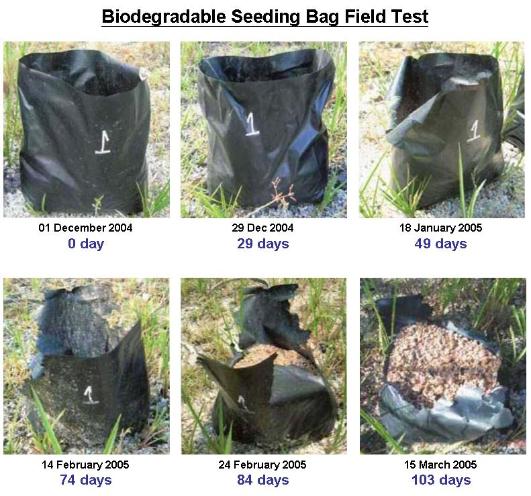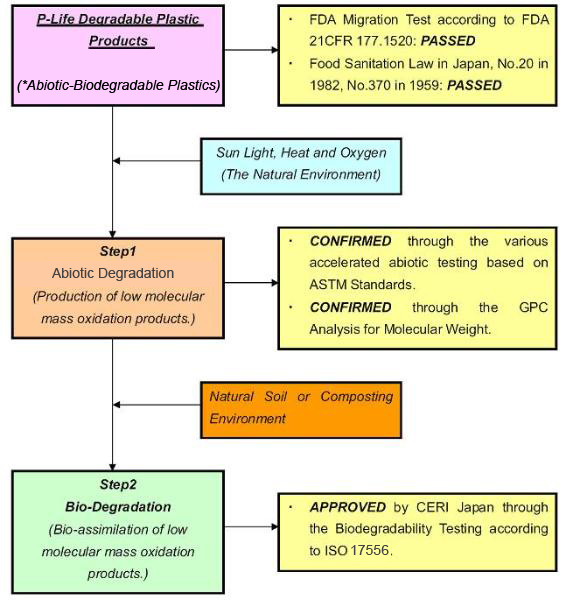Programmable Service Life
Under normal condition, plastic materials would manage a predetermined service life before physical degradation commences. There should be no significant changes in the physical and mechanical properties of the materials during its service life.
The Service Life of P-Life Degradable Plastic Products under indoor conditions should be calculated by determining the activation energy of heat aging testing. 1 day of 80°C Heat aging is estimated as 4 days in 64°C and about 4 months in 24°C environment.
In terms of UV Exposure testing: 1 day UV Exposure testing is approximately equal to 2 weeks at a climate similar to Miami, Florida.
However, the actual Lifetime of the products will be varied in the respective local environmental, thus we strongly advice you to purchase products with P-life additive from only our authorized dealers.

Degradation Steps of P-Life Degradable Plastics
After completion of their lifetime as plastic products, plastics with P-Life additive (P-Life Degradable Plastics) start to degrade once they are disposed in the natural environment.
Stage 1: Abiotic Degradation
Under Sun Light, together with abundance of Heat and Oxygen – stage 1: abiotic degradation commences – the abiotic reaction leads chain scission of polyolefin polymers and the production of low molecular mass oxidation products such as carboxylic acids etc.
Through the stage 1: abiotic degradation, P-Life Degradable Plastics become embrittled and they are ready to be bio-assimilated by the living organism.
The Abiotic Degradation of P-Life Degradable Plastics is confirmed through the various accelerated abiotic testing such as Thermal and UV Exposure Testing based on ASTM Standards (Please refer to Annex1). And the GPC Analysis for Molecular Weight is also shown in Annex1.
Stage 2: Biodegradation
In stage 2: biodegradation, the low molecular mass oxidation products produced in the process of stage 1: abiotic degradation will be bio-assimilated gradually in soil or bio-active composting environment.
During this stage, plastic materials are digested by the living organism; they are then transformed into Carbon Dioxide (CO2), Water (H2O) and Biomass through metabolism of the living organism.

Copyright © 2013 P-Life.com.hk. All rights reserved.